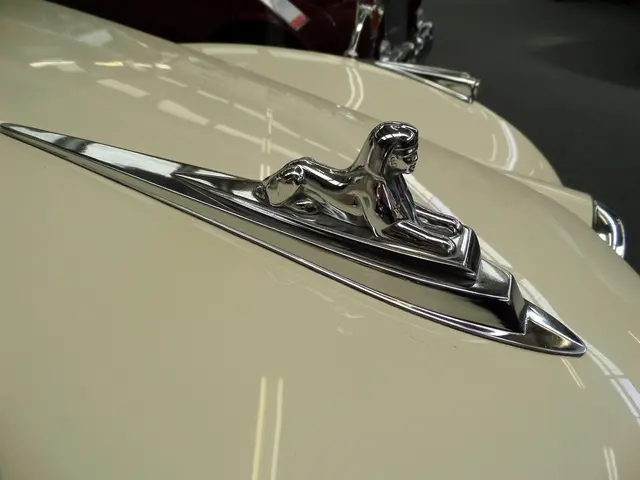Porsche temporarily halts EV sales due to concerns about potential battery combustion issues.
Firing Up Some Trouble: Porsche's Electric Car Sales Pause Over Battery Fires
Porsche's popular electric car, the Taycan, is facing a sales pause due to concerns over battery fires, tainting its reputation as a luxury EV. While the Taycan enjoyed swift success when launched in 2019, safety malfunctions have cast a shadow on its stellar start.
Last year, Porsche issued a recall for first-generation models due to potential short circuits within battery modules during service. This glitch could lead to thermal events resulting in vehicle fires [1][2][3]. The Driver and Vehicle Standards Agency (DVSA) joined forces with Porsche to rectify the issue with a free software update keeping the battery in check at all times.
A small number of the earliest models remain in stock at UK dealers, leading them to cease sales until the software update becomes available later this month. Porsche's franchised dealers received an official bulletin, instructing them to remove a portion of the affected Taycan models from their sales floors immediately [4].
The Taycan has endured a dozen safety recalls related to brake, suspension, and electronic defects over the past four years [4]. However, the looming battery fire concerns have become the most pressing issue.
Porsche admitted that 135 UK vehicles are presently held back from customer availability [2]. The automaker anticipates the battery monitoring software to be live towards the end of June, at which point these cars can resume sales [2]. In total, 7,916 UK models are awaiting this software update [2].
For existing Taycan owners, drivers have already been contacted by the brand, urging them to restrict charging their vehicle to a maximum of 80%. They have been invited to their local dealership for regular safety inspections every 60 days until the software update is available [1][3].
The new software will reportedly enable the vehicle to monitor and detect battery module anomalies. If an anomaly is detected, a warning message will appear, and the car will automatically limit charging to 80%. Owners will then be advised to visit their nearest Porsche dealership for further inspection [1].
This battery fire concern is not an exception, as various electric car fires in the UK have risen by 77% between 2022 and 2024 according to QBE Insurance figures [5]. Fire departments responded to 232 incidents last year. In September 2023, a Taycan caught fire on a street in Chongqing, southwestern China, amidst chaotic traffic.
Source: 1, 2, 3, 4, 5
More Insights
- Battery Fire Risks: The primary concern revolves around a potential short circuit within the high-voltage battery pack. This issue can lead to thermal events that may subsequently cause vehicle fires.
- Interim Safety Measures: Existing Taycan owners are advised to charge their vehicles to no more than 80%. Additionally, they are required to visit their local dealership every 60 days for safety inspections until the software update becomes available.
Traditionally reliant on fossil fuel-powered vehicles, Porsche's segue into the EV market demonstrates a progressive commitment to green technology. However, the recent battery fire concerns have provided a significant hurdle in maintaining that momentum. With its anticipated software update incoming and strict safety measures in place, one can only hope for a swift resolution to get the Taycan back on track — and on the road — as a pioneer in the EV industry.
- Despite Porsche's advancements in technology and electric vehicles with the Taycan, the battery fire concerns have created a significant challenge in maintaining the brand's momentum in the EV market.
- As a precautionary measure, Porsche has advised existing Taycan owners to charge their vehicles to a maximum of 80% and visit their local dealership for regular safety inspections every 60 days, until the software update becomes available.
- The increase in electric car fires in the UK, as reported by QBE Insurance, further underscores the importance of prioritizing safety measures in the development and maintenance of electric vehicles, including electric vehicles like the Taycan.








